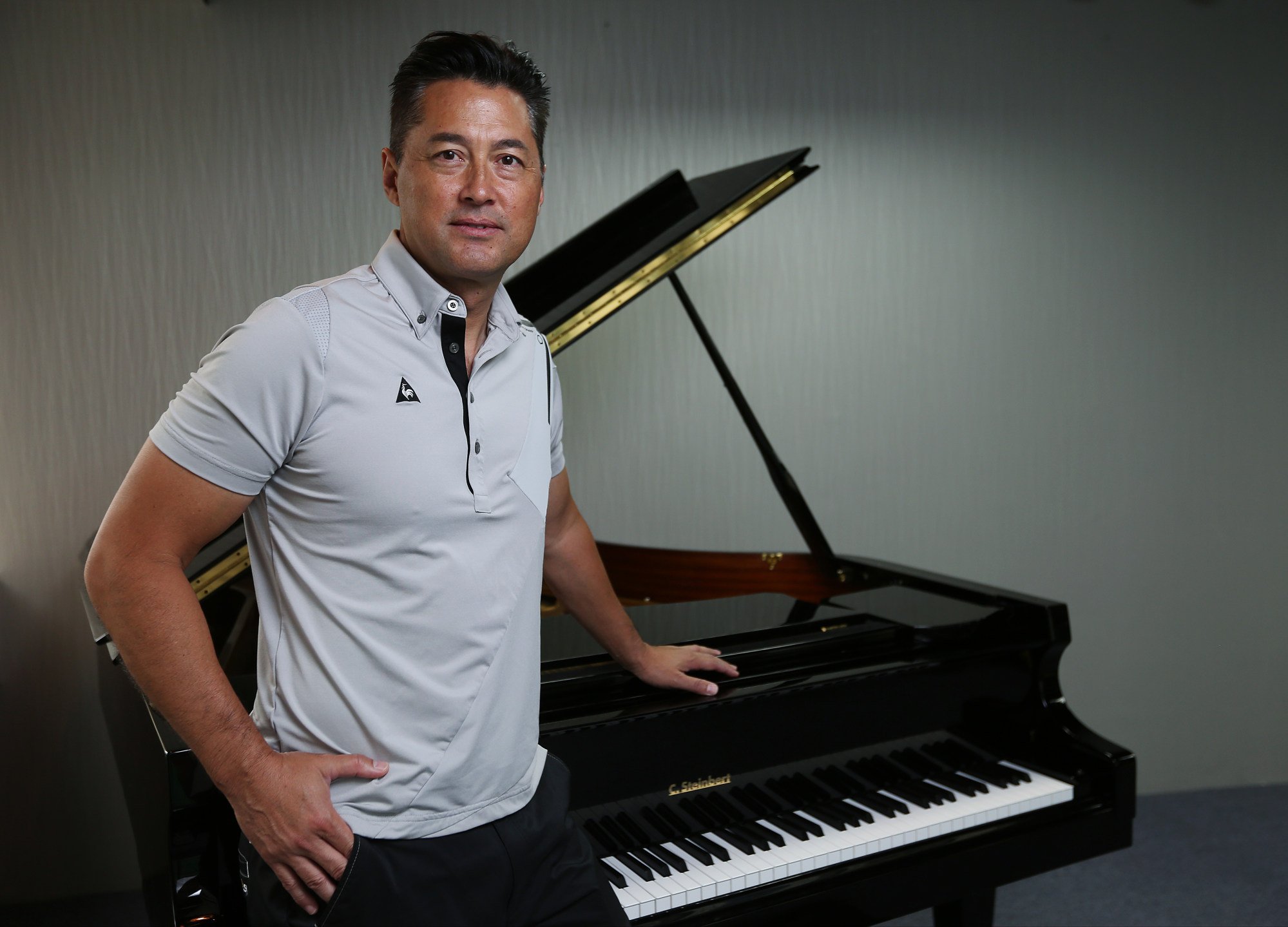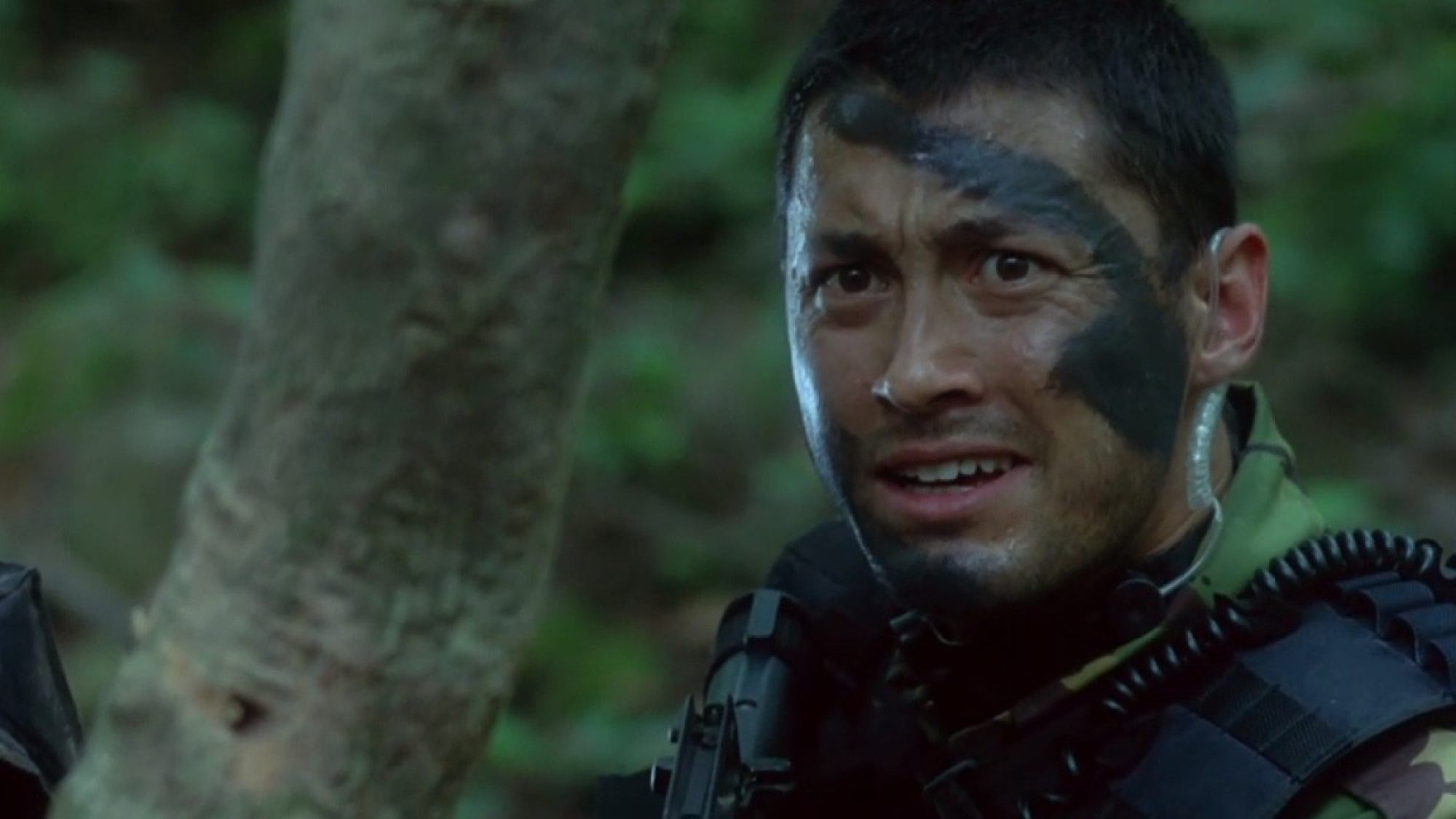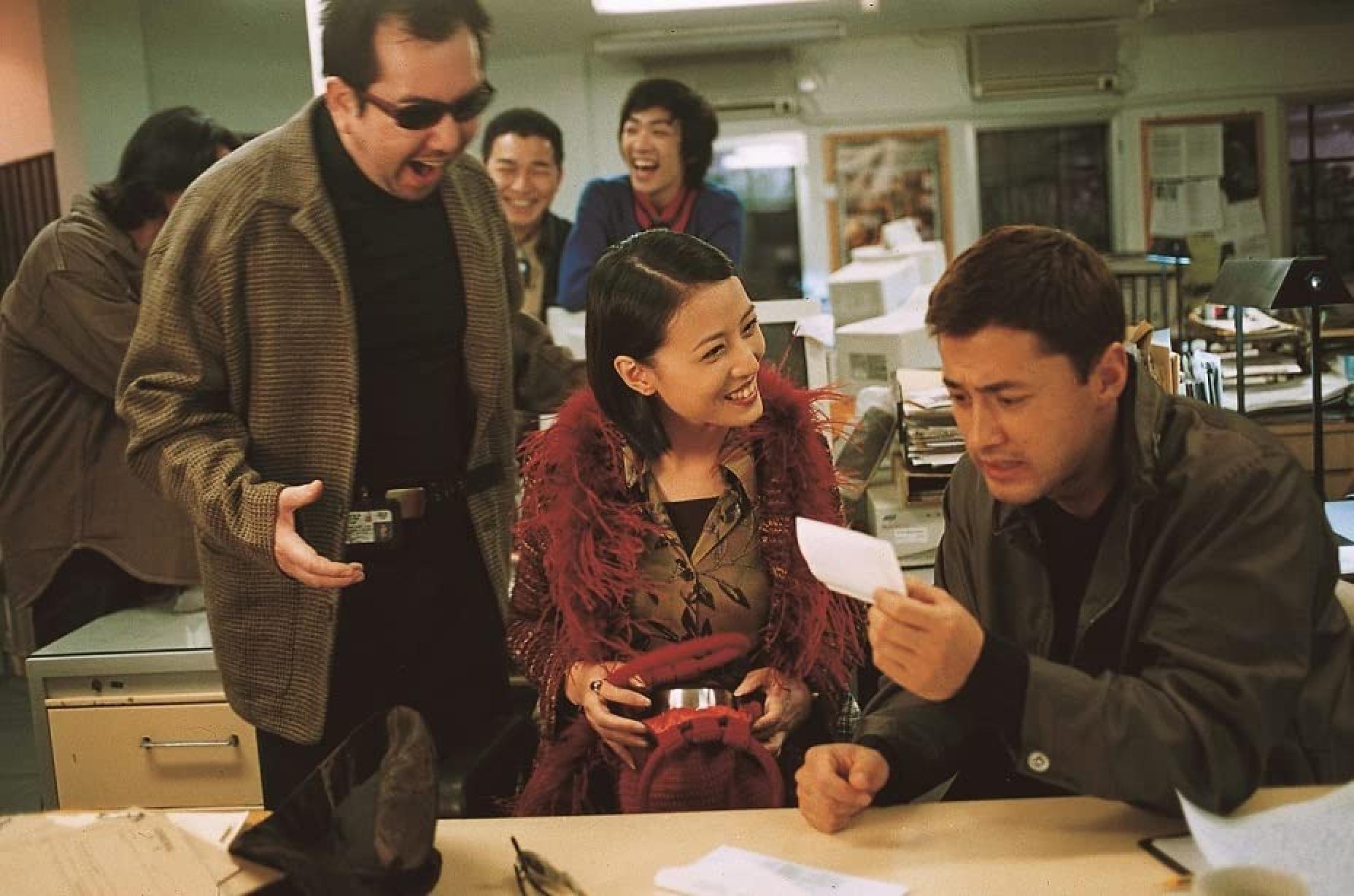
Michelle Yeoh film gave him his first break, but typecast him too: Hong Kong actor Michael Wong’s early roles and how he rose above his critics
- Early in his career, Chinese-American actor Michael Wong was treated like a foreigner in the Hong Kong film industry because he did not know Cantonese
- Dubbed over in Royal Warriors, starring Michelle Yeoh, and called ‘wooden and uninspired’, Wong went on to impress in subsequent crime movies such as Beast Cops
It sounds impossible, but it happened.
Chinese-American actor Michael Wong Man-tak arrived in Hong Kong in the early 1980s unable to speak Cantonese and with no knowledge of martial arts, yet managed to forge a durable and long-lasting film career.
Wong achieved this despite facing constant derision from international fans of Hong Kong films and being treated like a foreigner by the city’s film industry – which referred to him as “the gweilo” – because of his inability to speak the local dialect.

We look back at the early films of Wong, who became just as well known for being a playboy as a performer.
Royal Warriors (1986)
Michelle Yeoh’s mentor, Jackie Chan’s boss – the many sides to Sammo Hung
D & B Films was known as the “middle class” film company, and Wong’s clean-cut American looks fitted nicely with that concept.
Wong’s character is written to be annoying and bratty, and that image stuck with him throughout his early career.
“Michael’s acting in his early films was a bit wooden and uninspired, showing little potential beyond having just a pretty boy, MTV look,” says film historian Frank Djeng.
“The fact that we didn’t get to hear his own voice – he had to be dubbed – hurt his on-screen persona as well,” Djeng says.
The Final Option (1994)
The Final Option, a police actioner directed by Gordon Chan Kar-seung in 1994, thrust Wong centre stage, and he delivered a tough performance which elevated his professional standing. Wong showed that if he was given the right material and good direction, he was able to shine.
He played Stone, the head of an armed police unit called the SDU who takes his recruits through training and then out into dangerous situations in the field.
The crime element of the film is intercut with scenes of the domestic lives of the policemen, and this gave Wong the opportunity to show that he had a greater dramatic range than he had previously exhibited.
Chan said he went out on a limb with the casting, as Wong’s career was suffering from his starring appearance in a relatively explicit Category III – adults-only – film called Fatal Love (1993).

“I really took a gamble with Michael,” Chan told this writer in an interview in 1998. “At the time, people mainly associated him with that Category III film he did, which was a bit bizarre.
“I asked around in the industry, and everyone told me that his career was finished. But I saw him in an advertisement for Chivas Regal [whisky], and it seemed like he had turned over a new leaf.
“We met and talked about the film, and I saw the good qualities in him. The gamble paid off and he worked out well,” Chan said.
The unusual thing about The Final Option was that Chan asked Wong to speak most of his lines in English, sometimes crossing over into Cantonese.

“When I said I was going to try that, everyone in the industry said it would be a big mistake,” Chan told this journalist. “But I said I thought they were wrong, noting that, as everyone liked watching Hollywood films and that English was part of our culture, why would anyone think it was odd? In the end, audiences loved it.”
While disciplining his squad of recruits, Wong’s character utters what would become his most memorable line: “Don’t call me gweilo [foreigner].” The actor has said the line sums up how he has felt for the duration of his career in the Hong Kong film industry.
The Final Option was followed by the confusingly titled prequel The First Option in 1996. It was different in style from the original but equally good, and Wong’s performance was praised.
“Wong has charisma, blasting baddies and still finding time to deliver speeches on the nature of police work and justice”, this journalist wrote in the Post’s review of the film.
The Case of the Cold Fish (1995) and The Log (1996)
Wong appeared in a few good independent-style films, including Jamie Luk Kim-ming’s The Case of the Cold Fish and Derek Chiu Sung-kei’s The Log.
The former is an unusually gentle police drama that downplays the action. The film is set in a remote police station in Tai O, on Lantau Island.
After a murder, a local police officer, played by Dicky Chow Man-kin, tries to solve the case in the slow way he normally works. But the arrival of a cocky city inspector, played by Wong, leads to conflict.
Wong gets the tonality of his abrasive “foreigner” character just right. “It’s British versus Chinese, city versus country, as the two cops gradually learn how to work together and solve the case,” Post critic Paul Fonoroff wrote.
The Log is a similarly sensitive piece of work. In it, Wong plays one of three very different police officers trying to solve a case.
“Ever since The Final Option, Michael Wong has become typecast as an English-speaking smart-a** cop. The Log is a variation of that,” wrote Fonoroff.
Although some of the scenarios were unlikely, “Wong plays his role with sincerity,” Fonoroff noted.
Beast Cops (1998)
Into this ambivalent melee comes Michael Wong, playing a police officer who wants to do everything by the book – “The world is black and white and I am white,” he tells his partner. But as the story progresses, it becomes clear that everyone is, in fact, a muddy shade of grey.
Chan has said that he had Michael Wong in mind for the character when he was writing the script, and noted that he tried to reflect some elements of the actor’s personality.

“I also vividly remember some of the action scenes, and running through the streets being whacked by a group of gangsters. It was very dramatic. It was a great film of its time,” he said.
In this regular feature series on the best of Hong Kong cinema, we examine the legacy of classic films, re-evaluate the careers of its greatest stars, and revisit some of the lesser-known aspects of the beloved industry.
